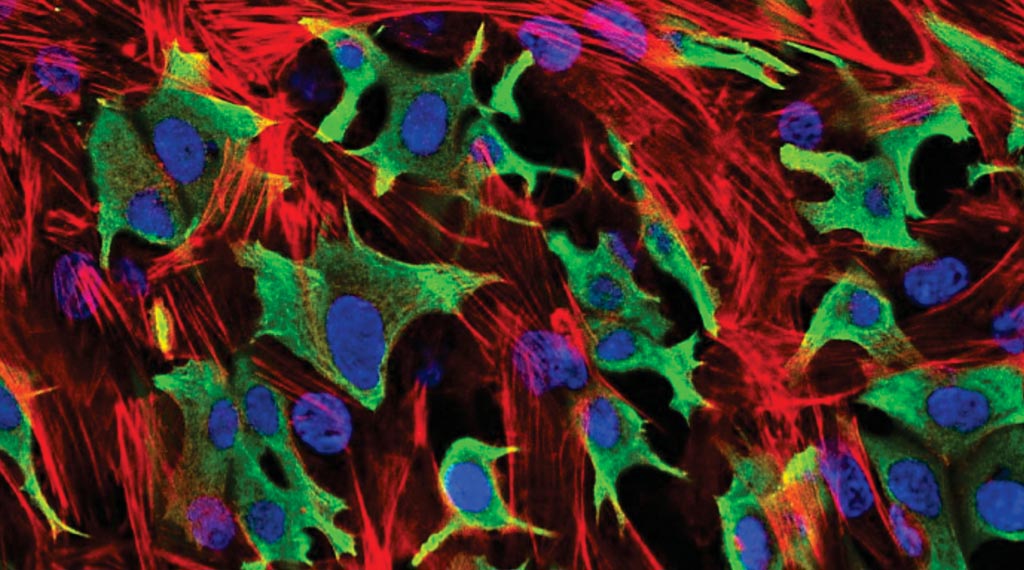Unhealthy Gut Promotes Spread of Breast Cancer
By LabMedica International staff writers
Posted on 18 Jun 2019
Most breast cancers, 65% or more, are hormone receptor positive. That means their growth is fueled by a hormone, either estrogen or progesterone. The good news is that these types of cancers are likely to respond well to hormone therapy.Posted on 18 Jun 2019
It is unknown why some patients with hormone receptor-positive (HR+) breast cancer present with more aggressive and invasive disease. Metastatic dissemination occurs early in disease and is facilitated by crosstalk between the tumor and tissue environment, suggesting that undefined host-intrinsic factors enhance early dissemination and the probability of developing metastatic disease.

Breast cancer cells invading through a layer of fibroblasts. Hormone receptor-positive breast cancer has been found to spread faster when the microbiome is disrupted (Photo courtesy of Institute of Cancer Research).
A multidisciplinary team of scientists from the University of Virginia Health System (Charlottesville, VA, USA) identified commensal dysbiosis as a host-intrinsic factor associated with metastatic dissemination. Using a mouse model of HR+ mammary cancer, they demonstrated that a pre-established disruption of commensal homeostasis results in enhanced circulating tumor cells and subsequent dissemination to the tumor-draining lymph nodes and lungs. Commensal dysbiosis promoted early inflammation within the mammary gland that was sustained during HR+ mammary tumor progression.
Furthermore, dysbiosis enhanced fibrosis and collagen deposition both systemically and locally within the tumor microenvironment and induced significant myeloid infiltration into the mammary gland and breast tumor. These effects were recapitulated both by directly targeting gut microbes using non-absorbable antibiotics and by fecal microbiota transplantation of dysbiotic cecal contents, demonstrating the direct impact of gut dysbiosis on mammary tumor dissemination.
Melanie Rutkowski, PhD, a microbiologist and corresponding author of the study, said, “When we disrupted the microbiome's equilibrium in mice by chronically treating them antibiotics, it resulted in inflammation systemically and within the mammary tissue. In this inflamed environment, tumor cells were much more able to disseminate from the tissue into the blood and to the lungs, which is a major site for hormone receptor-positive breast cancer to metastasize.” The authors concluded that they had identified dysbiosis as a pre-existing, host-intrinsic regulator of tissue inflammation, myeloid recruitment, fibrosis, and dissemination of tumor cells in HR+ breast cancer. The study was published on May 7, 2019, in the journal Cancer Research.
Related Links:
University of Virginia Health System














